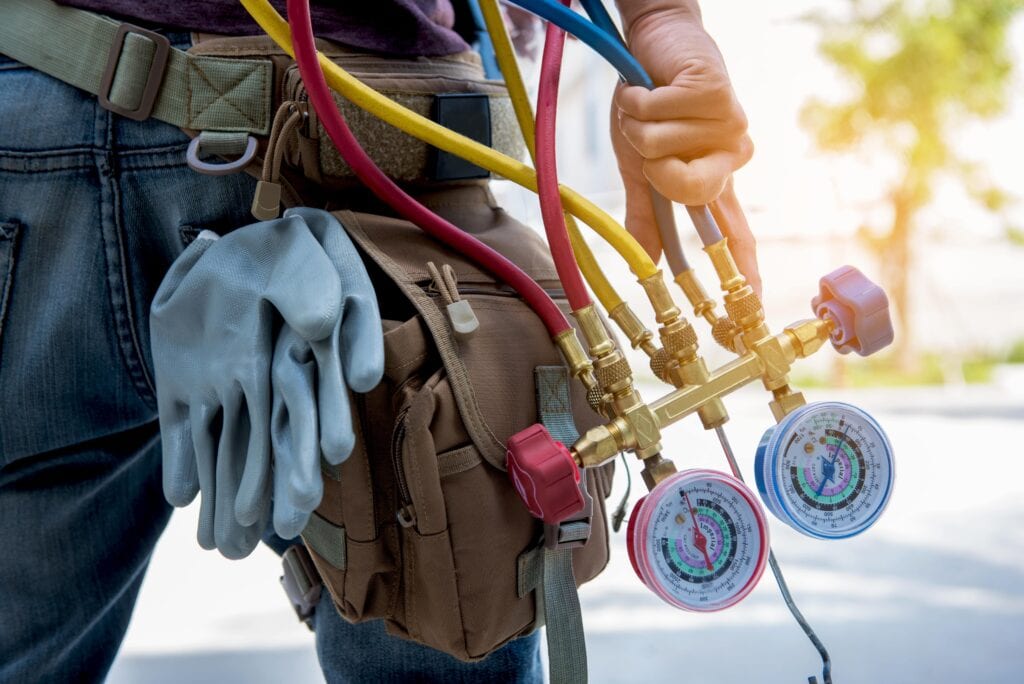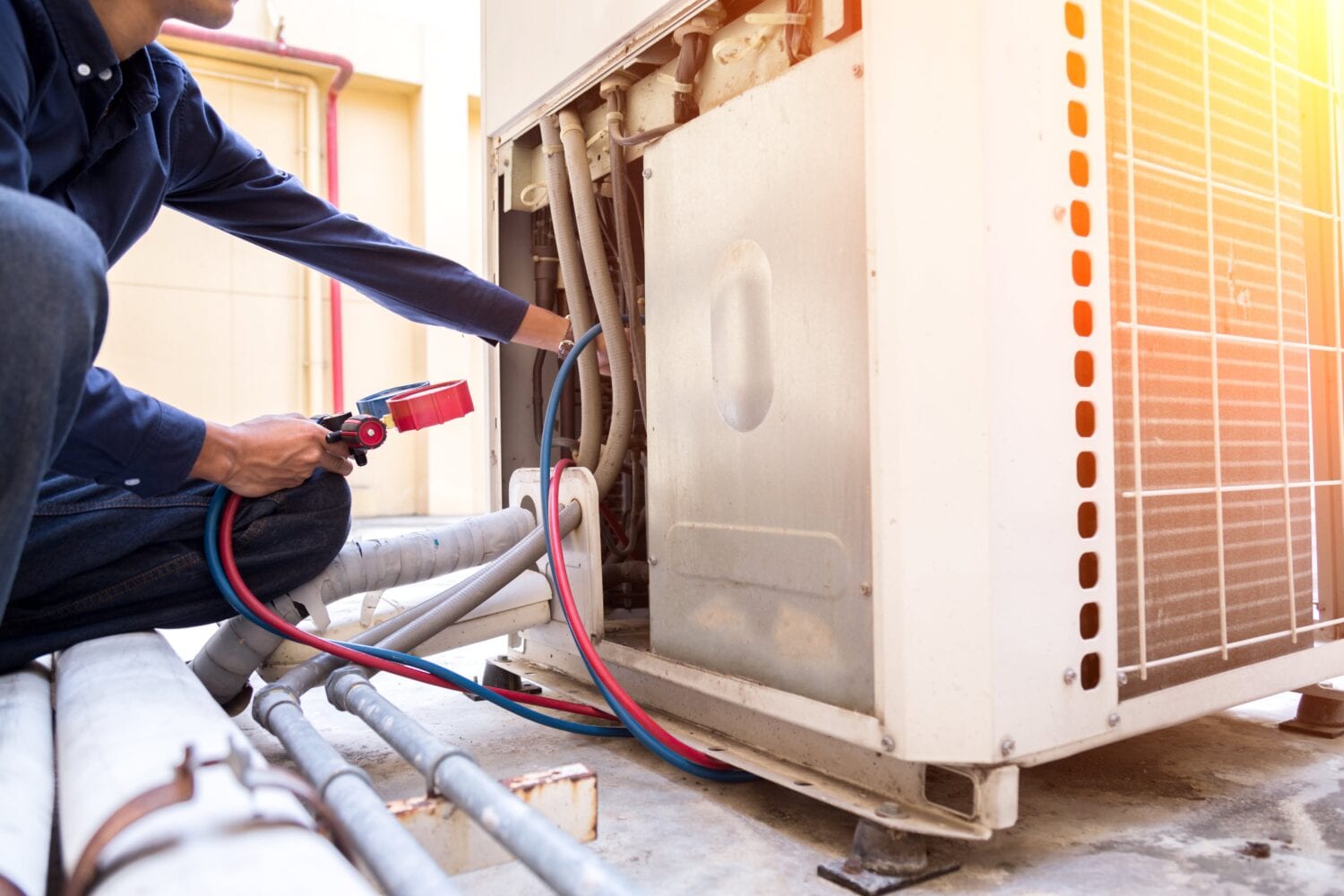How To Diagnose Common Air Conditioning Problems
by
Enjoy cool, fresh air all year with a restored HVAC system. Find out how to spot A/C problems in Fort Myers, Florida today and learn more about HVAC training courses near you. Don’t invest in maintenance services year after year but invest in the professional training you need to repair your own system and start an exciting career. Diagnose Common Air Conditioning Problems with the following guide.
How Does an Air Conditioner Work?
Before you learn how to diagnose common air conditioner issues it’s important to understand the basic parts of an AC system. Here are the primary components that work together to provide you with comfortable temperatures throughout the year:
- Compressor
- Condenser coil
- Refrigerant
- Expansion valve
- Evaporator coil
These components can range in size depending on the unit you have. Typical AC units include central AC, window units and a ductless air conditioning system. Professional technicians can troubleshoot every type of system and provide quality repairs and maintenance.

What Are Common AC Problems?
Air conditioners use powerful electricity, refrigerant and moving components in a complex system to provide cool air on a hot day. Many AC problems require an HVAC technician to diagnose and repair. Here are common issues that may be affecting your system.
1. Air Isn’t Coming Out
Turn on your thermostat and wait for cool, comfortable air. If your air conditioner isn’t working properly, you may not notice any air at all. A complete lack of air can be a troubling sign. Unfortunately, there are many systems that could be causing this symptom. Learn how you can receive the training you need to diagnose this issue.
2. Air Isn’t Cold
Another common issue is a lack of cold air. When a system is blowing out warm air or air that isn’t as cool as normal it could be a sign that you have a refrigerant leak. It could also be caused by a minor issue, such as a clogged air filter or a blocked drain. If your system continues to blow out warm air it can overwork your blower fan, since it may not shut off until your home reaches the selected temperature.
3. AC Isn’t Energy Efficient
Increased energy usage is a sign that you need to maintain or replace your air conditioner. Before investing in a new unit, find out how common maintenance and repair steps can improve the efficiency of your system and reduce your costs.
Want to Become an HVAC Technician?
How Can I Repair My Air Conditioner?
Some maintenance tasks are easy for homeowners to accomplish, but many more repair steps require professional experience and training. Learn more about HVAC/R technology programs in Fort Myers to find out how to repair your own air conditioner. Understanding the key components of an air conditioner and how to safely troubleshoot repair issues gives you the confidence you need to safely restore your cool air and indoor air quality.
1. Replace Air Filter
The easiest and most straightforward maintenance task is to replace your air filter. An air conditioner uses an air filter to filter out any allergens or contaminants to improve your indoor air quality. Over time, this filter can become clogged and decrease the airflow and efficiency of your system. Most filters should be replaced every three months, but some need to be replaced more frequently. A central AC system uses the same blower and filter as your furnace, but a window or ductless unit also uses a filter.
2. Check Your Thermostat
Another common repair or maintenance issue is your thermostat. Your home may have a damaged, inefficient or improperly adjusted thermostat. A damaged thermostat won’t activate your system when the temperature increases above your desired indoor temperature. An inefficient one doesn’t offer you the customization you need to reduce your energy use. Finally, an improperly adjusted thermostat could be preventing your system from turning on or cooling your home to your ideal temperature. Adjusting your thermostat is an easy DIY maintenance task, but replacing or repairing one requires professional training.
3. Charge Air Conditioner
AC systems use refrigerant to cool air that is then forced with a blower into your home through ductwork. A leak in the cooling tubes or another issue with your refrigerant can affect the temperature of the air being forced into your home. Charging an air conditioner requires specialized tools and training to avoid damaging your system. An uncharged system won’t provide cool air and will continue to blow warm air through your vents.
4. Perform Annual Maintenance
Finally, if you want to learn how to avoid major AC failure, start an annual maintenance program. Learn how to maintain your own AC unit at a local training program. Skilled technicians inspect an air conditioning system for signs of damage and perform any cleaning and sealing services necessary to enjoy long-lasting results.
5. Replace System
Air conditioners don’t last forever. After years of quality service, it may be time to retire and replace your unit. Find out how a qualified technician can measure a home to find the ideal AC and install it safely. A new air conditioner offers reduced costs, improved performance and years of warrantied service.
Where Can I Learn More About a Career in HVAC Repair?
If you’re looking for more information about repairing your own AC system, or if you’re excited about the idea of a career helping your community enjoy cool, fresh indoor air, learn more about the HVAC/R technology program at Florida Academy. Discover the benefits of professional training and apply today at Florida Academy to get started on an exciting career option in Fort Myers, Florida.

